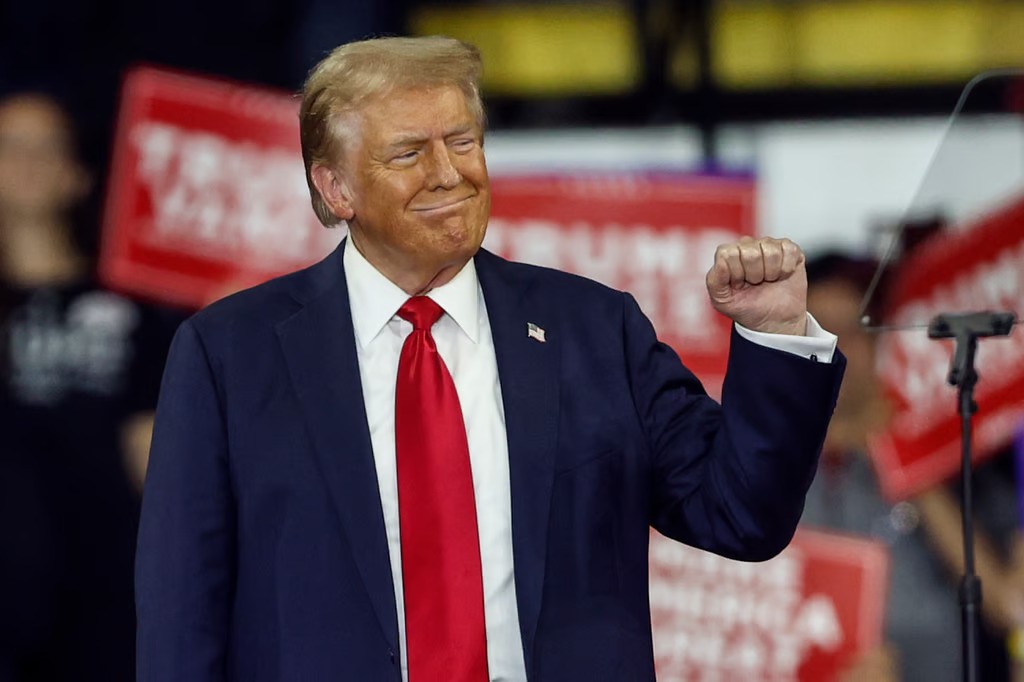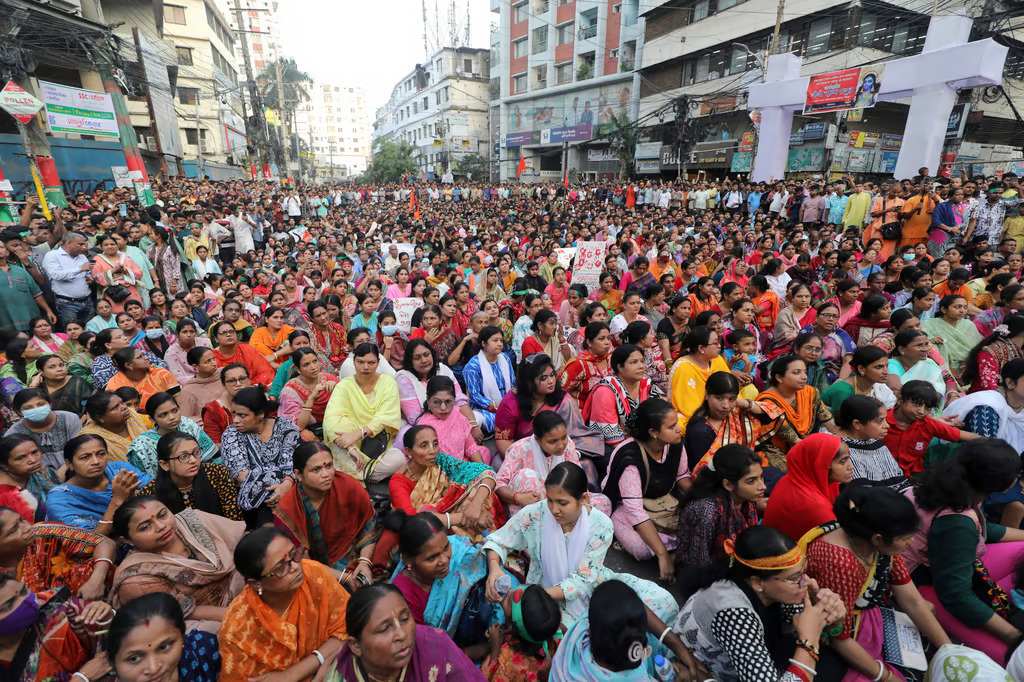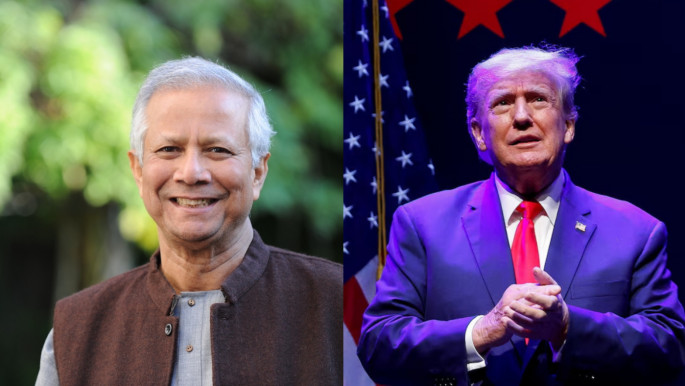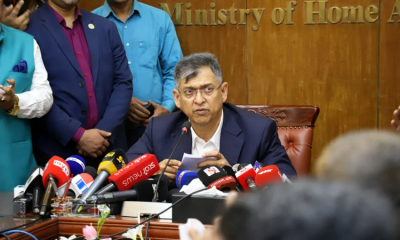Muhammad Yunus, the interim leader of Bangladesh’s government, is expected to “bury the hatchet” with US President-elect Donald Trump and start afresh in working with the new American administration, according to a report by South China Morning Post.
Analysts say while Yunus’ strained relationship with Trump is an open secret, Bangladesh’s “strategic appeal” as a country with close ties to India and China means the US government is likely to reciprocate Dhaka’s overtures.
“I suspect Yunus will be ready to bury the hatchet,” said Michael Kugelman, director of Washington-based South Asia Institute at the Wilson Center think tank, noting that Trump’s election win came at a time when Bangladesh was trying to rebuild and stabilise in the post-Sheikh Hasina era.
“I don’t expect much criticism from Yunus now, and his warm congratulatory note to Trump sent an important signal in that regard,” Kugelman added.
Yunus was sworn in as Bangladesh’s interim leader in August when a student-led uprising forced former prime minister Sheikh Hasina to leave the country after more than 15 years in power.

US President-elect Donald Trump. Photo: TNS
Shortly after Trump’s election win was projected on November 5, Yunus congratulated him on his victory, adding that he was looking forward to strengthening the partnership between Bangladesh and the US.
The animosity between Yunus and Trump dates back to 2016, when the latter was first elected as US president.
Yunus – a 2006 Nobel Peace Prize recipient and known critic of Trump – condemned the election result, calling the victory “a solar eclipse” and one that had “hit us so hard” that he could hardly speak.
Yunus’ ties with the Democrats have also been a sore spot. He is known to be close to former US president Bill Clinton and ex-secretary of state Hillary Clinton.
Lailufar Yasmin, international relations professor at the University of Dhaka, said things were different now, with Yunus representing 170 million Bangladeshis and a country with vital geopolitical significance for South Asia and beyond.
“He has been handling Bangladesh’s foreign relations deftly,” Yasmin said.
According to Yasmin, Trump’s policy towards Bangladesh is likely to see more continuity than change as he seeks to maximise America’s interest.
Bangladesh, as “a country that is close to China”, will have “strategic appeal” to US policymakers, with Washington likely to view Dhaka as a key actor in its Indo-Pacific Strategy with which it would expand trade and commercial ties, Yasmin added.
Syed Munir Khasru, chairman of the international think tank IPAG Asia-Pacific, Australia, said the history between Yunus and Trump, especially Yunus’ donations to the Clinton Foundation in 2016, “added complexity to their relationship”.
But such sentiments did not represent Bangladesh’s overall foreign policy, with Dhaka having pursued ties with Washington in mutually beneficial areas such as trade, development and technology, Khasru said.
Bilateral trade between the two countries reached US$13 billion in 2022.
Under the new Trump administration, Dhaka is expected to strengthen cooperation, particularly in digital infrastructure development, according to Khasru.
“US interest in regional stability and economic development aligns with Bangladesh’s growth objectives,” he said.

Bangladesh Hindus take part in a rally demanding for protection against attacks and harassment, in Chattogram, Bangladesh, on November 1. Photo: AP
In a social media post on October 31, Trump condemned the “barbaric” violence against Hindus and other minorities in Bangladesh and vowed to protect Hindu Americans.
Trump has also described as “very shameful” the Bangladesh police’s crackdown on his supporters after they scuttled a celebratory rally last Friday.
Since the ouster of Hasina, extremists have scaled up their attacks on Hindus, who make up 8 per cent of the country’s population. More than 2,000 attacks on Hindus have occurred since August 4, according to the Bangladesh Hindu Buddhist Christian Unity Council.
Kugelman said while Trump’s recent comments “certainly wouldn’t get the relationship off to a stellar start”, Dhaka likely recognised that the remarks were “more a reflection of US electoral politics than of Trump’s formal policy”.
Despite Trump’s comments, Bangladesh and the US maintain a strategic relationship that is grounded in shared interests such as counterterrorism, humanitarian support, and regional stability, according to Khasru.
Following Hasina’s ouster, Washington sees an opportunity, Khasru noted, to expand its influence in the Indian Ocean through Bangladesh’s key location on the Bay of Bengal – an area crucial for monitoring China’s presence along the China-Myanmar Economic Corridor.

People purchase groceries from a government-subsidised open market sales point in Dhaka, Bangladesh, on Monday. Photo: Reuters
Dhaka, however, would face a “delicate balancing act” as it sought to realise the benefits of its US partnership without alienating regional powers such as India and China, Khasru said, noting that New Delhi had supported the Hasina government.
Hasina’s ouster is widely seen as a setback for India, who had courted and built strong ties with the previous Bangladeshi government. Her exile in India is said to have posed a dilemma for Delhi.
Last month, Chinese navy ships docked in Bangladesh, sending ripples through the Indian Ocean region – and raising eyebrows in Delhi.
Yasmin said Bangladesh should invest in appointing a lobbyist to create awareness about its domestic politics and its appeal to US lawmakers.
“The policy of wait-and-see can cost Bangladesh in the long run, which it cannot afford at this stage,” she said, noting that the current government’s emphasis on a “Bangladesh First” strategy aligned with Trump’s own “America First” policy.
“This already shows a confluence of interests that will lead to a better understanding of each other,” Yasmin said.
To read the original story click here: Bangladesh’s Yunus could ‘bury the hatchet’ with Donald Trump to advance ties










-20260225072312.webp)







-20260224075258.webp)












-20260219054530.webp)
-20260218060047.jpeg)
